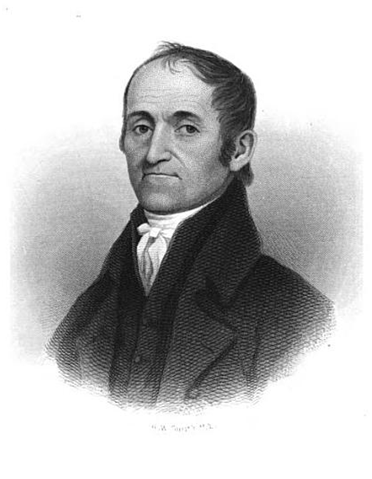On August 7, 1800, David Bacon, a native of Woodstock and a minister with the Home Missionary Society of Connecticut, set out on foot for the then far lands of the West in hopes of converting Native Americans in that area to Christianity. Traveling mostly by foot for 34 days Bacon reached Detroit, where he held council with the Mackinac tribe. Bacon spent two months there, returning to Hartford in December of that year and reporting his progress to the missionary society. It was during his return that Bacon married Alice Parks on Christmas Eve in Lebanon. Shortly after, the two set out to Arbrecroche, Michigan, 40 miles from the Mackinac people and a center of the Ottawas, Chippewas, and Ojibways. The Bacons were undaunted in their efforts to convert the Native Americans to Christianity but their mission failed. In the summer of 1804 they were called to the Connecticut Western Reserve to await their next assignment.
Bacon and his family continued missionary efforts first in Hudson, Ohio, and later through other parts of the Western Reserve. In 1807, the Congregationalist Church authorized him to establish the town of Tallmadge, but by the end of 1808 only 12 families had made the town their home. Bacon struggled with creditors and by 1812 he was evicted from the land. He returned to Hartford where he spent the remainder of his life selling religious texts door to door.
David Bacon died in 1817, and although he did not live to see it, the Tallmadge community grew to be the center of the Congregationalist faith in Ohio. In 1875, two of Bacon’s grandsons traveled to Ohio and made a monument to their grandfather in Tallmadge, later annexed to Akron. Dedicated in June of 1881 it reads, “Here the First Church in Tallmadge gathered in the House of Rev. David Bacon, January 22, 1809.”









